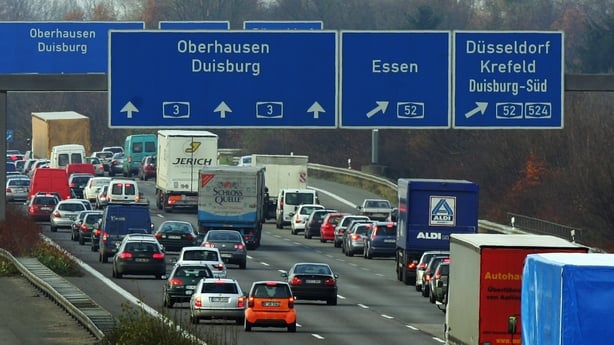Business confidence in Germany fell in June to its lowest in more than a year, suggesting the mood among company executives is darkening as the world edges towards a full-blown trade war.
Activity declined in all four sectors measured by the Munich-based Ifo institute in today's survey - manufacturing, services, trade and construction.
The readings added to signs that Europe's biggest economy is cooling after a strong 2017, though economists said a recession was not on the cards.
Ifo said its business climate index fell to 101.8, the lowest level since May 2017 and just beating a Reuters consensus forecast of 101.7. The index has now fallen in six of the last seven months.
"The boom is over. The discussion about a trade war is weighing on the mood. Uncertainty has increased slightly," Ifo economist Klaus Wohlrabe told Reuters.
The institute said the June reading was taken before a row over migration broke out within Germany's governing coalition that one economist called potentially more damaging than the tariff dispute.
Observers predicted the economy would continue to grow, albeit at a slower pace than last year's 2.5%.
Much of the German data published this year has pointed to a cooling economy.

Industrial activity and exports were weak in the first four months, and US President Donald Trump is threatening to impose hefty tariffs on car imports from Europe - a trade that Germany dominates - on top of earlier unilateral duties on metals.
Business leaders are worried that a parallel trade confrontation between Washington and Beijing could harm German exporters who rely on the world's two largest economies for growth.
Of potentially greater concern is a row over immigration within Chancellor Angela Merkel's conservative alliance that has unsettled her coalition government three months after it took office.
The Christian Social Union (CSU), the Bavarian sister party of Merkel's Christian Democrats (CDU), is threatening to impose entry restrictions at the border with Austria if she fails to secure a deal to distribute migrants more fairly among European countries at an EU leaders' summit this week.
Merkel conceded that leaders had failed to find a joint solution to the issue in emergency talks on Sunday.
Economists said German could easily weather existing US tariffs on aluminium and steel, and even significant US import tariffs on cars might not affect demand, particularly if the euro remains weak.
But should the migration row cause Merkel's government to collapse and trigger a snap election, more serious economic damage was likely.
For the economy, this would mean further delays of the urgently needed investments, new structural reforms and strengthening of the (European) monetary union, they said.

